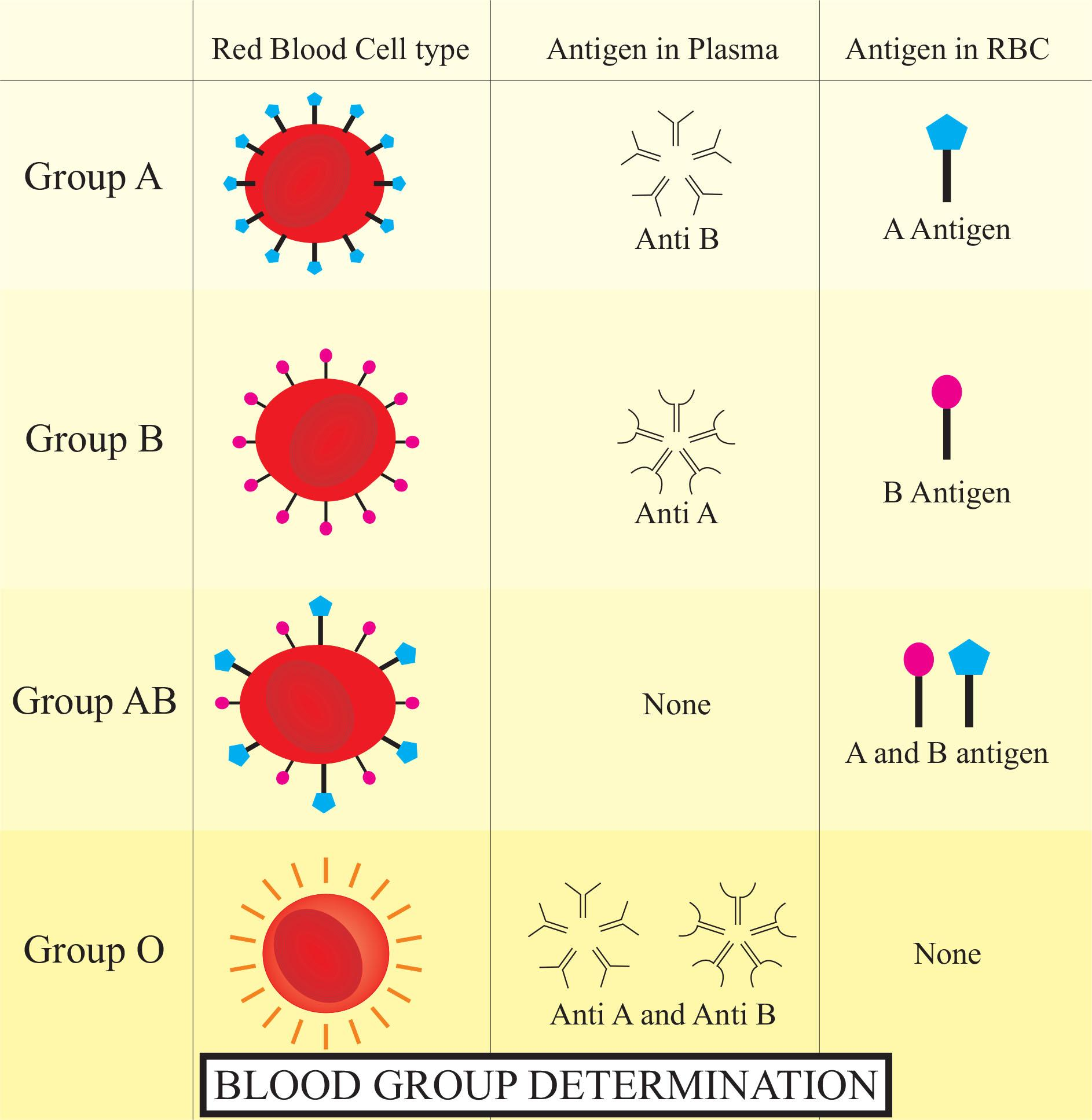
B blood group person can donate blood to and receive blood from
(a)B, O, and B, O
(b)B, AB, and B, AB
(c)B, AB, and B, O
(d)A, B and A, B
Answer
576.3k+ views
Hint: B blood group individuals may donate blood to the blood group of the universal recipient, and B blood group individuals may receive blood from the blood group of the universal donor. They are eligible to donate and obtain blood from others of their own blood type.
Complete answer:
B blood group persons may donate blood to B, AB, and obtain blood from B and O, since they produce A antibodies during transfusion.
The following blood types are compatible during donation:
Blood type A donors will donate to blood type A and AB recipients.
Donors with blood type B will donate to recipients with blood types B and AB
Only blood type AB donors may donate to recipients of blood type AB.
Blood type O donors can donate to blood type A, B, AB, and O recipients.
As group AB individuals may receive blood from all blood groups, type AB is known to be the universal recipient. As people with this blood group will donate to anyone, Blood Group O is known as the Universal Donor blood group.
Additional Information:
The ABO framework:
There are four major classes of blood that are determined by the absence or appearance on the RBC surface of two unique antigens-A and B.
Group A: Shows the presence of Antigen A on the plasma surface of the RBC and B antibodies.
Group B: Shows the presence of antigen B on the surface of the RBC and antibody A in the plasma.
Group AB: Displays the presence of Antigen AB on the surface of the RBC and neither antibody A nor antibody B in the plasma.
Group O: The RBC surface displays no antigens, but the plasma displays both A and B antibodies.
So, the correct answer is, ‘B, AB, and B, O’.

Note: Human blood is divided into 4 major blood classes- A, B, AB, and O, according to the ABO system. This is focused on the presence or absence of the surface of red blood cells (RBCs) of unique antigens. While blood is made up of the same basic elements, these antigens help to differentiate the various classes of blood. When blood from a particular blood group is introduced into the body, these antigens are often responsible for an immune response. It is, therefore, necessary for blood to be carefully blood-typed and crossmatched prior to transfusion.
Complete answer:
B blood group persons may donate blood to B, AB, and obtain blood from B and O, since they produce A antibodies during transfusion.
The following blood types are compatible during donation:
Blood type A donors will donate to blood type A and AB recipients.
Donors with blood type B will donate to recipients with blood types B and AB
Only blood type AB donors may donate to recipients of blood type AB.
Blood type O donors can donate to blood type A, B, AB, and O recipients.
As group AB individuals may receive blood from all blood groups, type AB is known to be the universal recipient. As people with this blood group will donate to anyone, Blood Group O is known as the Universal Donor blood group.
Additional Information:
The ABO framework:
There are four major classes of blood that are determined by the absence or appearance on the RBC surface of two unique antigens-A and B.
Group A: Shows the presence of Antigen A on the plasma surface of the RBC and B antibodies.
Group B: Shows the presence of antigen B on the surface of the RBC and antibody A in the plasma.
Group AB: Displays the presence of Antigen AB on the surface of the RBC and neither antibody A nor antibody B in the plasma.
Group O: The RBC surface displays no antigens, but the plasma displays both A and B antibodies.
So, the correct answer is, ‘B, AB, and B, O’.

Note: Human blood is divided into 4 major blood classes- A, B, AB, and O, according to the ABO system. This is focused on the presence or absence of the surface of red blood cells (RBCs) of unique antigens. While blood is made up of the same basic elements, these antigens help to differentiate the various classes of blood. When blood from a particular blood group is introduced into the body, these antigens are often responsible for an immune response. It is, therefore, necessary for blood to be carefully blood-typed and crossmatched prior to transfusion.
Recently Updated Pages
Master Class 11 Computer Science: Engaging Questions & Answers for Success

Master Class 11 Business Studies: Engaging Questions & Answers for Success

Master Class 11 Economics: Engaging Questions & Answers for Success

Master Class 11 English: Engaging Questions & Answers for Success

Master Class 11 Maths: Engaging Questions & Answers for Success

Master Class 11 Biology: Engaging Questions & Answers for Success

Trending doubts
One Metric ton is equal to kg A 10000 B 1000 C 100 class 11 physics CBSE

There are 720 permutations of the digits 1 2 3 4 5 class 11 maths CBSE

Discuss the various forms of bacteria class 11 biology CBSE

Draw a diagram of a plant cell and label at least eight class 11 biology CBSE

State the laws of reflection of light

10 examples of friction in our daily life




